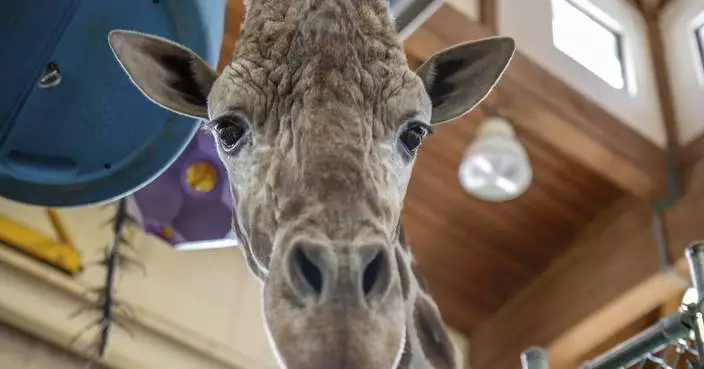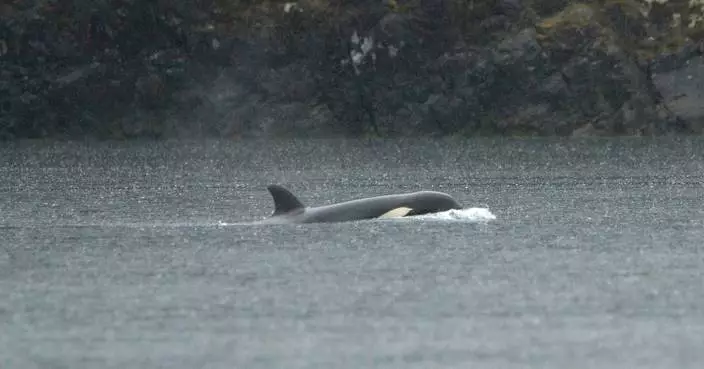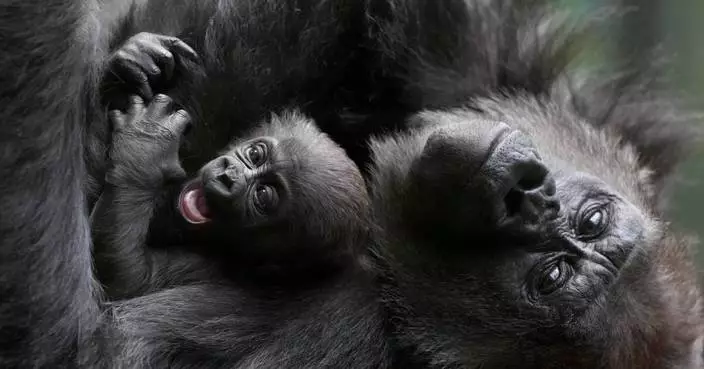The male calf, which has not been named yet, was born to mother Sayang and father Mowgli on January 31.
The Royal Zoological Society of Scotland has released the first pictures of a rare Malayan tapir born at Edinburgh Zoo.
The male calf, which has not yet been named, was born to mother Sayang and father Mowgli on January 31.
He is the eighth tapir calf to arrive at the zoo since 2007.
Malayan tapirs are considered an endangered species with a European conservation breeding programme helping protect them from extinction.
The brown and white fur helps provide camouflage for baby tapirs in their natural rainforest habitats, developing to black and white after a few months.
An online poll has been set up to help decide a name for the zoo’s new arrival.
Suggestions include Penang, Haruun, Bintang, Megat, Amal and Bernam – all of which have a Malayan connection.
Jonny Appleyard, team leader for hoofstock at Edinburgh Zoo, said: “Malayan tapir populations in the wild are continuing to decline, so all births are incredibly valuable to the breeding programme and we’re really excited about our latest arrival.
“At the moment he is staying very close to mum Sayang but will soon find his feet and start to follow her outside.”
Voting on the tapir’s name closes on Tuesday.
ZEBALLOS, British Columbia (AP) — An orphaned killer whale stranded in a remote Vancouver Island lagoon is proving difficult for rescuers to catch, an official at the site said Friday.
Ehattesaht First Nation Chief Simon John said the capture operation is in the “demobilization stage” after an unsuccessful attempt to rescue the 2-year-old orca that began before dawn.
He said they plan to try again in a couple of days, and that rescuers were “standing down.”
The 2-year-old calf has been alone in Little Espinosa Inlet for about three weeks after its pregnant mother was beached at low tide and died on March 23.
The pair got into the lagoon by swimming through a narrow and fast-moving channel connecting it to the ocean.
The First Nation said earlier that the rescue was launched at 5 a.m. because of favorable weather conditions.
The rescue plan involves trying to corral the female calf into a shallow part of the 3-kilometer lagoon, using boats, divers and a net, before she would be placed in a large fabric sling and hoisted onto a transport vehicle.
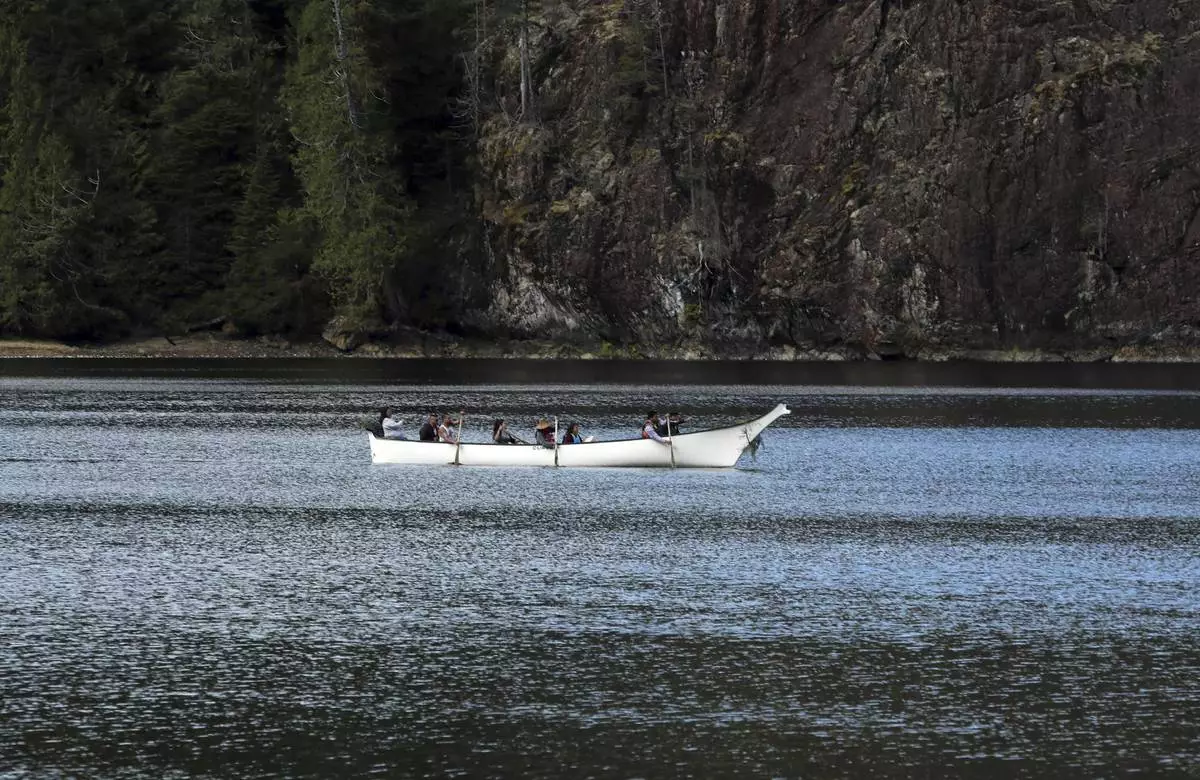
The Ehattesaht First Nation deployed a canoe and other resources to try and rescue an orphaned orca, but were unsuccessful, at a lagoon near Zeballos, British Columbia, Friday, April 12, 2024. (Chad Hipolito/The Canadian Press via AP)
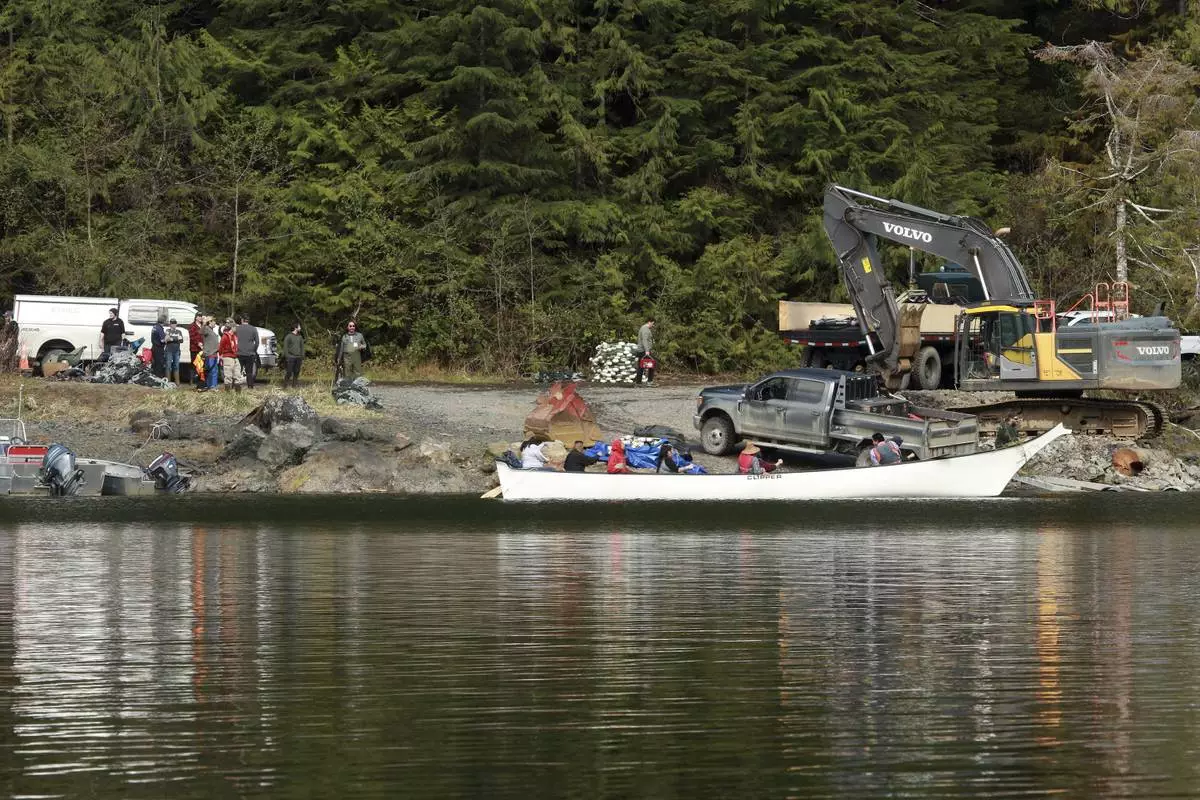
The Ehattesaht First Nation deployed a canoe and other resources to try and rescue an orphaned orca, but were unsuccessful, at a lagoon near Zeballos, British Columbia, Friday, April 12, 2024. (Chad Hipolito/The Canadian Press via AP)





